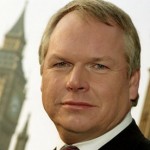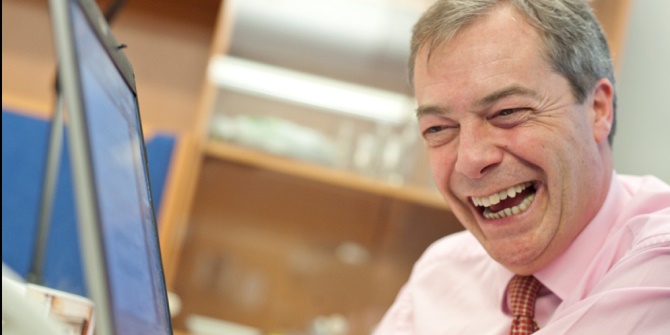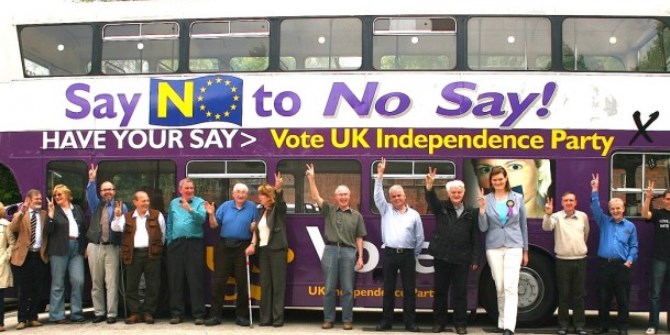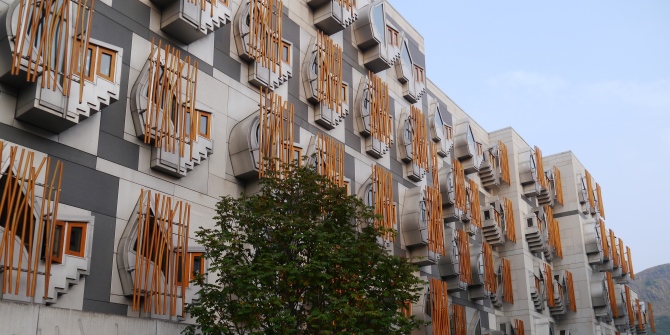This post was originally posted on Charlie Beckett’s blog on April 8th.
Charlie Beckett is the Director of POLIS.
 Sky News’ Politics Editor Adam Boulton is one of the most highly-respected political journalists in the land: unflappable, trustworthy, insightful and clear. So it’s great to get a chance to hear off-screen what he thinks about this election. Despite the calm demeanour, he’s excited.
Sky News’ Politics Editor Adam Boulton is one of the most highly-respected political journalists in the land: unflappable, trustworthy, insightful and clear. So it’s great to get a chance to hear off-screen what he thinks about this election. Despite the calm demeanour, he’s excited.
Talking to a Foreign Press Association event at the LSE, Boulton convinced me that the TV Debates – he hosts the second – could change the campaign. I have already written about how I think TV is still the most important medium in this campaign, but I also fear that over-rehearsal, defensive tactics and spin would neuter them of any swing impact. Adam thinks differently.
Firstly, he points out how the electorate is less decided than ever before. “Everyone on the campaign trail tells me the vote is very soft” he says. We have a Government that should be miles behind but is still within touching distance of the Conservatives in the polls. Boulton thinks this is partly because of the decline of party loyalty and the social fragmentation of political allegiances. But it’s also because Labour has successfully constructed the debate into a choice. Do you – as an individual – stand to gain more from Labour protecting public services or from Tory tax cuts?
“It’s a classic self-interest election” says Boulton.
So with things so close the TV debates will matter:
“This campaign is about to be completely shaken up [by the first TV debate]. So far it has just been the lull before the storm” says Boulton. ”It’s not just the live debates themselves. There will be re-runs on all the channels plus the online downloads, the YouTube mash-ups and the rest. They will be a real presence in the campaign. And it won’t just be about personality. Policy will be discussed because they have to talk about something for 90 minutes”
And Boulton promises that they won’t be quite as tightly scripted and sedate as you might fear.
“If the party leaders choose to break the rules and start to engage with each other then that’s not something that we [the broadcasters] will get in the way of”
So in other words, if it kicks off, he’s not going to break up the fight. But who is likely to win?
Boulton points out that Brown has little to lose as expectations of this dour and derided figure are low. These debates may give him the chance to get across the more “sensitive and intelligent” side of his character.
For Cameron there is everything to lose. Which is why some senior Tories told Boulton that they thought the decision to agree to the debates was ‘catastrophic’. The public already see Cameron as a good performer, so he’s got to step up and deliver on substance as well. But the real problem for the Conservatives may be the platform the debates give to the Lib Dems’ Nick Clegg.
Boulton agrees with the conventional wisdom that the TV debates are a massive boost to the Lib Dems’ visibility. But he points out a dilemma for Clegg on how far he goes to engage with the other two leaders.
If Clegg is too remote then he will look like a ’spare part’. If he is too engaged then the danger is that he will look and sound ‘just like the others’. It’s a real test of an unproven politician.
Of course, as a broadcaster with his own TV debate to promote, Adam Boulton is understandably excited about the prospect of the on-screen hustings. But I think he makes a good case that they could have significant impact, at least in the short term. And in such a relatively close campaign that is what counts.
And if it produces a close result, then Adam Boulton has some interesting thoughts on what happens next:
“There is an untold story about a campaign being waged by the permanent Establishment of civil servants and other institutions – [they are conducting] an interesting re-education campaign about what happens if there is a hung parliament including briefings by people like Gus O’Donnel to the media. They are saying that we should not assume the Queen will do anything, it is up to the politicians. And they are saying that you should not assume that a hung parliament will lead immediately to another election, even if the majority party loses a vote of confidence.”
So in other words. If the British people vote for what the Lib Dems call a ‘balanced’ parliament and a form of coalition government, then that might be what we are stuck with. But does Adam Boulton think that is likely? At the moment, he says it is entirely unpredictable:
“I believe there is a mass psychology at elections. Somehow all those individuals do come together to create a common verdict but at the moment I can’t see any sign of a consensus emerging”
So wait and see and watch those debates.







